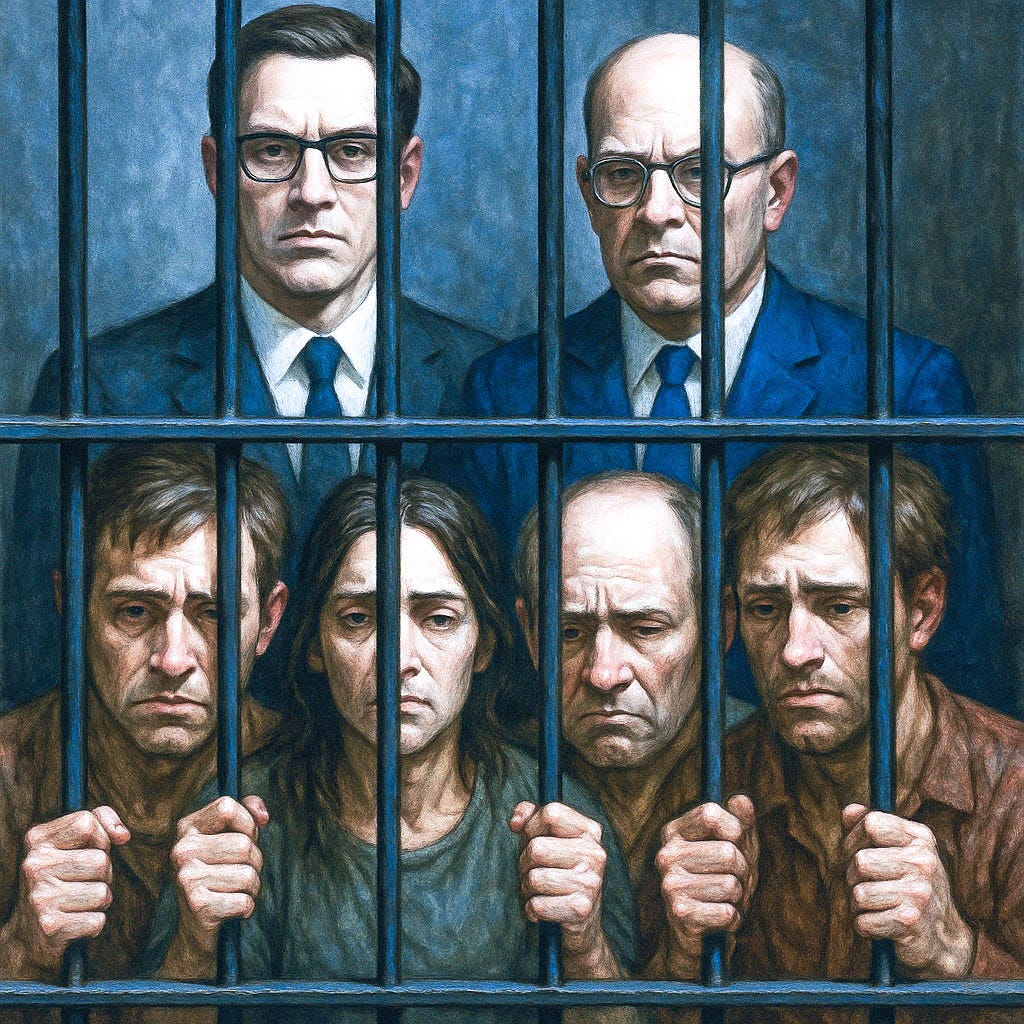There’s a quiet current beneath Silicon Valley’s surface sheen of futurism and libertarian hustle—a current stitched not in code but in ideology, threading through the minds of men who believe the 21st century will be remade not through democracy, but through dominance. The names echo through headlines and venture decks: Curtis Yarvin, Peter Thiel, Elon Musk. To the casual observer, they orbit different galaxies—one, a techno-philosopher cloaked in reactionary prose; another, a billionaire venture capitalist who treats Nietzsche like gospel; the third, a techno-mystic with delusions of Martian grandeur and memes. But together, they form a kind of trident—a trio casting long shadows over the future of governance, technology, and freedom.
Yarvin, also known as Mencius Moldbug, doesn’t need you to agree with him. He thrives when you don’t. The more you recoil, the deeper his thought experiment digs into the roots of your discomfort. At the core is a seething contempt for liberal democracy—not just its imperfections, but its very operating system. Through Unqualified Reservations, Yarvin refined the core principles of neo-reaction: a belief system that views democracy as obsolete, the Enlightenment as a mistake, and centralized, unelected power as a potential salvation.
To Yarvin, today’s Western world is ruled not by elected officials, but by a decentralized belief machine he brands "The Cathedral"—a convergence of elite academia, media, and bureaucracy that functions like a priesthood of progressivism. The cure, he argues, is formalism: a political reboot modelled on monarchic CEO-like figures who own and run states as if they were efficient corporations. No ballots, just boards. No voters, just shareholders. You don’t get a say—you get service.
If Yarvin is the architect, Peter Thiel is the venture capitalist underwriting the structure. A longtime admirer and occasional funder of Yarvin, Thiel’s disdain for democracy is less baroque, but just as pungent. “I no longer believe that freedom and democracy are compatible,” he once wrote. And so, he put his billions to work building systems of technocratic control, not consensus.
Thiel’s Palantir—the data behemoth he co-founded—is arguably the Cathedral’s shadow mirror: absorbing the entrails of global surveillance, defence intelligence, and predictive analytics, and turning them into decisions. Palantir doesn’t care who’s in charge. It operates beneath politics, enabling power itself. It’s DARPA meets Oracle. Or as its marketing puts it, “decision dominance”—a chilling euphemism if ever there was one.
But Thiel’s influence doesn’t end at the server rack. He bankrolls post-liberal thinkers, upstart populist candidates, and the ideological machinery around post-democratic America. His portfolio is a blueprint for how the world might run when run by the people who know better.
Enter Musk—the id to Yarvin’s ego and Thiel’s super-ego. Though more chaotic and performative than his ideological siblings, Musk has consistently demonstrated Yarvinian instincts: centralizing power, breaking institutions, and disregarding process. He flirts with absolute rule—not in the old-fashioned king’s court sense, but in the Silicon Valley sense: one man, one brand, infinite capital, and no oversight.
At Twitter/X, Musk performed a live-action Yarvin scenario: dismantling a liberal-leaning communication platform, replacing the bureaucratic layers with direct personal rule, firing the moderating class, and promoting "free speech" as an anti-elite bludgeon. He used memes, but the result was pure Moldbuggery—collapse the Cathedral from within, if only to prove it can bleed.
Musk’s admiration for Thiel is no secret—they were PayPal mafia brothers. However, his slow drift toward Yarvin’s worldview, through figures like David Sacks and a growing interest in “effective accelerationism” (e/acc), suggests something more disturbing: a convergence.
We should fear the philosophical laundering of authoritarianism through the guise of innovation. Yarvin justifies. Thiel provides the funding. Musk provides the theatre. What they collectively represent is not simply a rejection of liberal democracy, but a roadmap for replacing it with a digital feudalism, ruled by corporate warlords and coded law.
It’s not a coup by tanks, but by platforms. Not Orwell’s boot, but Kafka’s algorithm.
If liberal democracy was the flawed promise of collective rule, this new order offers something else entirely: submission to the wise, the rich, and the machine. And the most terrifying part? It doesn’t need to ask your permission. It already has your data.





